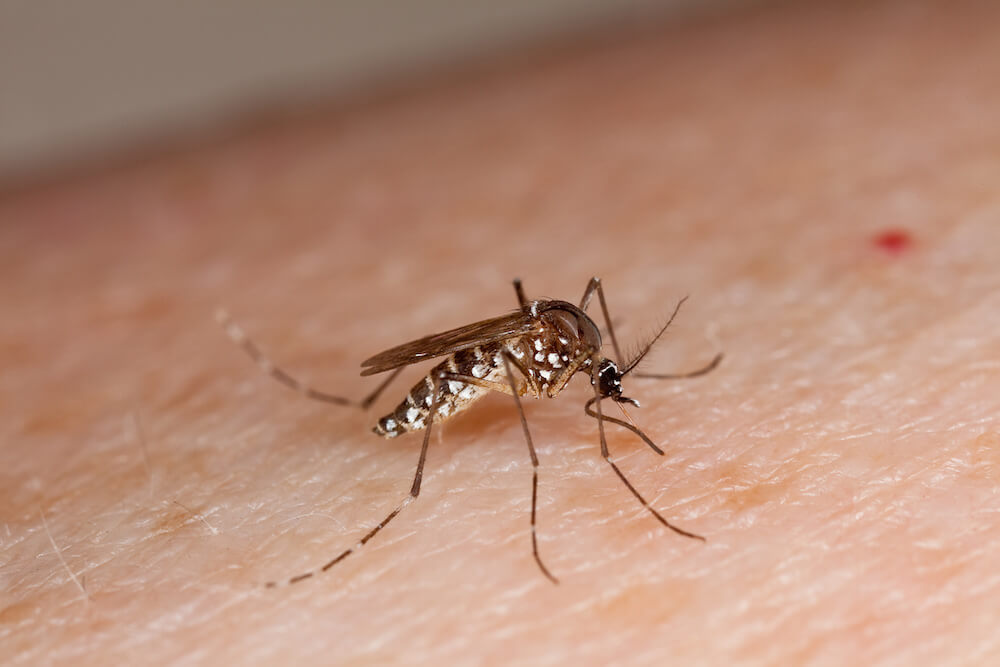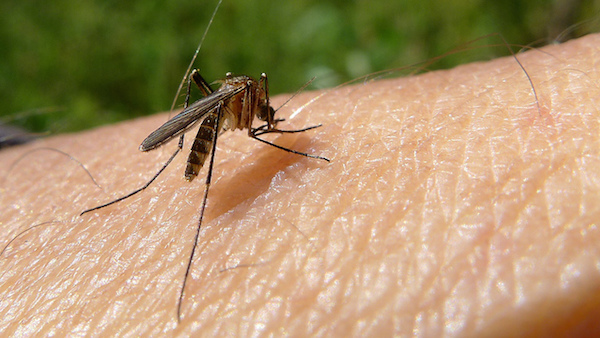Most New Yorkers welcome the warmer weather with open arms, but as temperatures rise, the city is making sure it keeps residents safe from some unwanted guests — that could bring with them a virus plaguing people all over the world. Mayor Bill de Blasio announced Monday the city will be implementing a three-year, five-borough Zika action plan aimed at preventing the spread of the Zika virus across the city.
The plan builds on the Health Department’s West Nile mosquito control program and will expand mosquito surveillance and control to identify and target any mosquitoes that could possibly transmit the virus. RELATED:Local Zika outbreaks in United States ‘likely’: US official “We are doing all we can to target the mosquito that could transmit Zika here in the city, and building the capacity to respond to every possible scenario, no matter how unlikely,” de Blasio said. “We will spare no effort to protect pregnant New Yorkers from the devastating consequences of Zika, and we ask New Yorkers to help us by taking simple steps to get rid of standing water where mosquitos can breed.” The Zika virus is primarily spread to people through the bite of an infected mosquito. The most common symptoms are fever, rash, joint pain, and red eyes. Although most people only deal with mild reactions to the virus, infection during pregnancy can cause serious birth defects. According to officials, as of April 18 there have been 40 reported cases of Zika in New York City — six of these cases were pregnant at the time of diagnosis and all cases were contracted while visiting other countries. All patients have since recovered. As part of the Zika action plan — which includes investments of $21 million over the three-year period including a match from New York State — the city will create capability to meet a growing need for testing pregnant women and local mosquitos for the virus; and will launch a complete campaign to spread information on prevention and testing. “We are using our technical knowledge and experience to gather as much information as possible and to respond swiftly to this emerging situation,” said Health Commissioner Dr. Mary T. Bassett.
The plan concentrates on three main areas: clinical services, mosquito control and public awareness.
Under clinical services the city is encouraging pregnant women who may have visited an affected area — which include parts of the Caribbean, Central America, South America and the Pacific Islands — while they were pregnant to get tested for the virus. The Health Department will also expand its capacity to trap, test and report any types of mosquitoes in the city and the viruses they may be carrying. The city has also distributed travel advisory posters to over 1,000 healthcare providers, such as urgent care centers and OB/GYN practices, who come into contact with pregnant woman.
“New Yorkers best defense against Zika is to avoid travelling to affected areas, talk to their doctor if they are concerned about having been infected, use mosquito repellant, and remove standing water in and around their homes,” Bassett said. The plan also calls for mosquito control, because although the type of mosquito which has caused the Zika outbreak in South America has never been found in the city, a similar species does call the city home. Starting this month and going until September, the city will monitor the mosquito population across the five boroughs. Any areas with higher numbers of the similar species will be target earlier and more often for mosquito reduction — which includes additional mosquito traps. On Monday the city also launched a $1.2 million citywide awareness campaign “Fight Back NYC” — which will be found on buses, subways, television and radio across the city. The campaign aims to remind New Yorkers of the steps they can take to both reduce and prevent being bit by a mosquito. RELATED:White House redirects money to fight Zika, urges Congress to act The Health Department has also scheduled over 200 community outreach events across the city to let residents know about travel warnings, mosquito prevention and any available testing, and the agency will also distribute free insect repellant to pregnant woman through clinics and community health providers. “There are a lot of unknowns around the Zika virus, but New York City is prepared to confront all possible scenarios, including a dramatic increase in imported cases over the summer and the potential for local transmission,” said Dr. Herminia Palacio, Deputy Mayor for Health and Human Services. “We already have one of the most robust mosquito control infrastructures in place to manage West Nile virus, and we are building on that to reduce the chance of a local outbreak.” More information on the Zika virus can also be found on the city’s Health Department’s website.
Such steps include wearing protective clothing, using repellant and getting rid of standing water.
City launches action plan to prevent spread of Zika virus to New Yorkers

USDA/Stephen Ausmus


















